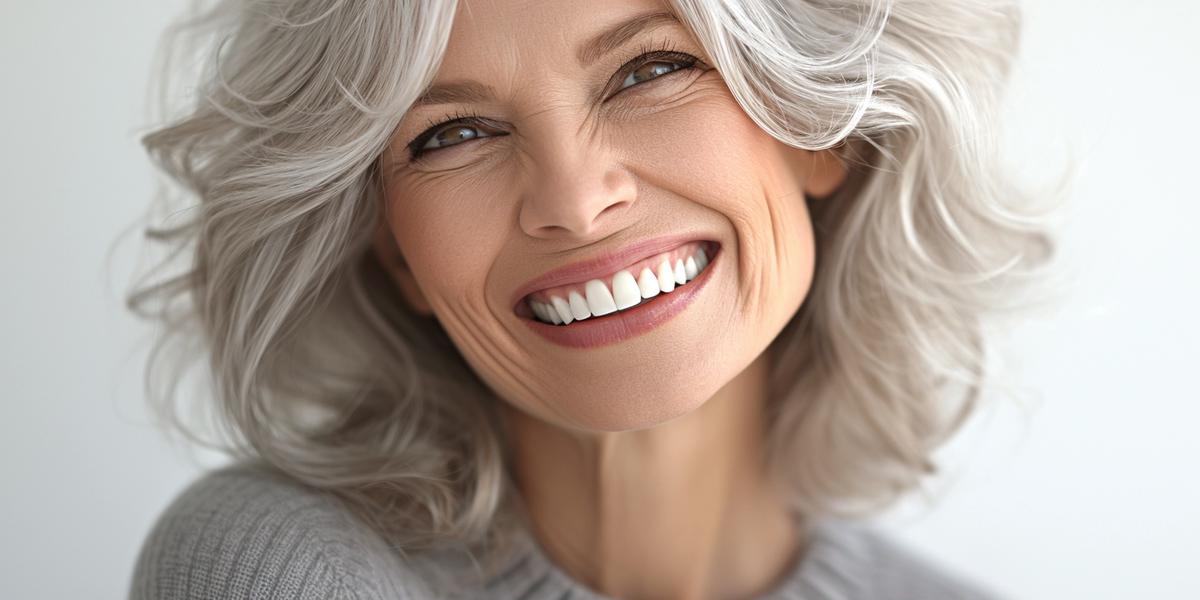The Price of a Smile: Understanding Dental Implant Costs 2025
Dental implants have become a popular solution for individuals looking to restore their smiles after tooth loss. While they offer significant benefits in terms of functionality and aesthetics, the costs associated with dental implants can vary widely. Understanding these costs is crucial for anyone considering this dental procedure.

Understanding Dental Implants
Dental implants are a revolutionary solution for replacing missing teeth, designed to closely mimic the form and function of natural teeth. This article delves into the components, procedure, benefits, and considerations associated with dental implants, providing a clear understanding for those considering this treatment.
What Are Dental Implants?
A dental implant consists of three main components: 1. Implant Post: A titanium screw that is surgically embedded into the jawbone, serving as the root of the artificial tooth. 2. Abutment: A connector placed on top of the implant post that holds the crown in place. 3. Crown: The visible part of the implant that resembles a natural tooth, providing aesthetics and functionality.
The unique feature of dental implants is that they are anchored directly into the jawbone, offering stability and durability that traditional dentures or bridges cannot match.

The Dental Implant Procedure
The process of obtaining dental implants typically involves several stages:
-
Initial Consultation: The journey begins with a consultation where the dentist evaluates oral health, takes X-rays, and determines if the patient is a suitable candidate for implants. This assessment may also involve a CT scan to create a 3D model of the jaw.
-
Preparation: If necessary, preliminary procedures such as tooth extractions or bone grafting may be performed to ensure there is enough bone density to support the implant.
-
Implant Placement: During surgery, a small incision is made in the gum to expose the jawbone. A hole is drilled into the bone where the titanium post will be inserted. After placement, the gum is stitched closed to allow for healing.
-
Osseointegration: Over the next few months, a process called osseointegration occurs, where the jawbone grows around and fuses with the implant post, creating a strong foundation for the artificial tooth.
-
Abutment Placement: Once osseointegration is complete, a minor surgical procedure may be performed to attach the abutment to the implant post. The gum tissue is then allowed to heal around this component.
-
Crown Placement: Finally, after healing is complete, a custom-made crown is placed on top of the abutment, completing the restoration.
Benefits of Dental Implants
Dental implants offer numerous advantages over traditional tooth replacement methods:
Considerations Before Getting Dental Implants
While dental implants are an effective solution for many people, there are several factors to consider:

Factors Determining the Cost of Dental Implants
Dental implants are a popular and effective solution for replacing missing teeth, offering a durable and aesthetically pleasing option. However, the costs associated with dental implants can vary widely based on several factors. Understanding these factors can help potential patients make informed decisions about their dental care.
The most significant factor influencing the cost of dental implants is the number of implants needed. Replacing a single tooth will naturally be less expensive than restoring multiple teeth. For instance, while a single implant might cost between $3,000 and $5,000, multiple implants can escalate the total cost significantly, especially if a full arch restoration is required, which may range from $20,000 to $50,000 depending on the complexity and number of implants used.
The materials used for dental implants also affect their cost. The most common materials are titanium and zirconia:
- Titanium: Known for its strength and biocompatibility, titanium is the traditional choice for implants and tends to be more affordable.
- Zirconia: This newer alternative offers aesthetic benefits due to its tooth-like appearance but typically comes at a higher price due to manufacturing costs.
Before placing dental implants, some patients may require additional procedures such as bone grafting or sinus lifts. These procedures are necessary when there is insufficient bone density to support the implant. The costs for these preliminary treatments can add significantly to the overall expense.
The geographical location of the dental practice significantly impacts implant costs. Dental clinics in urban areas or regions with a higher cost of living often charge more due to increased overhead costs. Conversely, practices in rural areas may offer lower prices due to reduced operational expenses.
The experience and reputation of the dentist performing the procedure can also influence costs. Highly skilled specialists with extensive training and a proven track record may charge more for their services. Patients might find that investing in an experienced professional leads to better outcomes and fewer complications in the long run.
Prior to implant placement, dentists typically require diagnostic imaging such as X-rays or CT scans to assess bone density and plan the procedure effectively. These imaging services can add an additional cost to the total treatment.

Cost Breakdown of Dental Implants
Dental implants are a highly effective solution for replacing missing teeth, but their costs can vary significantly based on multiple factors. This detailed breakdown provides an overview of the various components involved in the pricing of dental implants, helping patients understand what to expect.
Average Costs
The average cost of dental implants in the United States typically ranges from $3,000 to $8,000 per tooth. A full mouth reconstruction with dental implants can cost anywhere from $46,000 to $80,000. These costs encompass several components of the implant procedure.
Components of Dental Implant Costs
Cost: $50 - $300
This fee covers the initial examination and discussion about treatment options.
Panoramic X-ray: $100 - $250
Cone Beam CT (CBCT): $150 - $750
These imaging techniques help assess bone structure and plan the implant placement.
Cost: $150 - $700
If a tooth needs to be removed before placing an implant, this cost is incurred.
Simple graft (cow, cadaver, or synthetic): $200 - $300
Complex graft (cow, cadaver, or synthetic): $1,000 - $1,200
Patient's bone (simple): $1,800 - $2,200
Patient's bone (complex): $2,800 - $3,200
Bone grafting may be required if there is insufficient bone density to support the implant.
Cost: $1,500 - $2,500
This procedure raises the sinus floor to create space for implants in the upper jaw.
Cost: $1,500 - $3,000
The titanium post that serves as the root of the artificial tooth.
Cost: $300 - $600
The connector piece that attaches the crown to the implant post.
Cost: $900 - $1,500
The visible part of the implant that resembles a natural tooth and provides functionality.
Total Estimated Costs
Here's a summary table illustrating estimated costs for different types of dental implants:
| Type of Implant | Estimated Cost Range | $ Symbol Count |
|---|---|---|
| Single Tooth Implant | $3,000 - $8,000 | |
| Multiple Implants (2-4 teeth) | $6,000 - $18,000 | |
| Full Mouth Implants | $46,000 - $80,000 | |
| All-on-4 Dental Implants | $12,000 - $50,000 per arch | |
| Implant-Supported Dentures | $14,000 - $32,000 | |
| Zygomatic Implants | $30,000 - $40,000 per arch |
Dental Implants: A Long-Term Investment in Your Oral Health
Dental implants have revolutionized the way we approach tooth replacement, offering a permanent solution that not only restores function but also enhances aesthetics. While the initial cost of dental implants may seem daunting, they represent a significant long-term investment in oral health and overall well-being. This article explores the various reasons why dental implants are worth every penny, emphasizing their durability, functionality, and impact on quality of life.
The Value Proposition of Dental Implants
- One of the most compelling reasons to consider dental implants is their impressive durability. With proper care, dental implants can last 25 years or more, making them a cost-effective choice in the long run. Unlike traditional dentures or bridges that may require frequent replacements or adjustments, implants are designed to withstand the daily pressures of chewing and speaking, providing reliable performance for decades.
- Dental implants closely mimic the appearance and function of natural teeth. The crowns are custom-made to match the color and shape of existing teeth, ensuring a seamless integration into your smile. This natural look not only enhances aesthetic appeal but also restores the sensation of biting and chewing, allowing individuals to enjoy their favorite foods without discomfort or fear of instability.
- When a tooth is lost, the jawbone begins to deteriorate due to lack of stimulation from tooth roots. Dental implants act as artificial roots, stimulating the jawbone and preventing bone loss. This preservation of bone health is crucial for maintaining facial structure and preventing the sunken appearance that can occur with missing teeth. By investing in dental implants, patients can maintain their youthful appearance for years to come.
- The psychological benefits of dental implants are significant. Many patients report increased self-confidence and improved quality of life after receiving implants. A complete smile allows individuals to engage more freely in social situations without worrying about the stability of their teeth. This boost in self-esteem can lead to better personal and professional relationships.
- Unlike dentures that require adhesives, special cleaning solutions, and regular adjustments, dental implants can be cared for just like natural teeth. This means lower ongoing maintenance costs over time. Patients do not need to spend money on additional products or frequent visits for adjustments, making dental implants a financially savvy choice.
- Dental implants do not require altering adjacent healthy teeth, unlike traditional bridges that may necessitate trimming surrounding teeth for support. This preservation of existing tooth structure contributes to overall oral health and ensures that neighboring teeth remain strong and intact.
Financial Considerations
While the upfront costs of dental implants may be higher than other tooth replacement options, it is essential to consider the long-term financial benefits:

Remarks
Understanding the costs associated with dental implants is essential for making informed decisions about restoring your smile. By considering factors such as the number of implants needed, location, material choices, and any necessary preliminary procedures, patients can better prepare for the financial commitment involved in this transformative dental treatment. Ultimately, while dental implants may require a significant upfront investment, their durability and functionality make them a worthwhile option for many individuals seeking to enhance their quality of life through improved oral health.

-
![]()
Medical Coding and Billing Courses: A Pathway to Employment at Kaiser Permanente
The healthcare industry is rapidly evolving, and with it, the demand for skilled professionals in medical coding and billing is on the rise. For those looking to enter this field, numerous free onlin…
-
![]()
Understanding Dental Implant Costs in 2025: What You Need to Know
What are Dental Implants? Dental implants are advanced dental solutions designed to replace missing teeth, providing a stable and durable foundation for artificial teeth. These implants typically con…
-
![]()
Say Goodbye to Tooth Loss: The Power of Dental Implants
Dental implants are a revolutionary solution for tooth loss, offering a natural look and feel that enhances oral health and overall quality of life. Introduction to Dental Implants 🌟 Dental implants…




